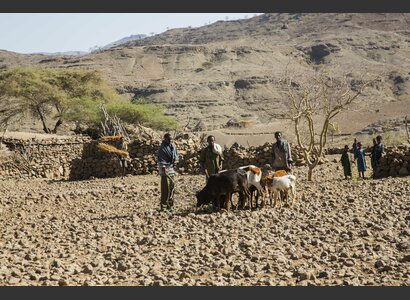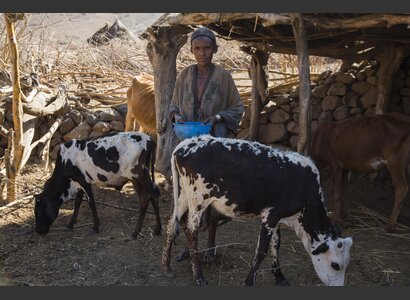Global Hunger Index 2019 states: Global warming hampers progress on global hunger, politicians should act.
Climate change involves a painful element of injustice: its impact is likely to be felt most severely by the poorest and most vulnerable – a segment of population that has who contributed the least to it, and often has the minimal capacity to adapt to it.
The Global Hunger Index (GHI) is an annually published report by Welthungerhilfe and Concern Worldwide. The GHI measures global hunger in several dimensions. Like Helvetas, Welthungerhilfe and Concern Worldwide are also members of the NGO coalition, Alliance2015.
The number of the extreme weather-related disasters has doubled since the 1990s. This year, the GHI highlights the inextricable link between hunger, climate change and the shared urgency of solving two of the world’s greatest challenges. Helvetas has been involved in this year’s reporting. The executive board member of Helvetas and co-author of the UN World Climate Report Climate, climate expert Rupa Mukerji, has put forward 9 proposals to international politicians and local governments.
- Governments must increase their financial support to the most vulnerable people and regions. Financing for climate change mitigation and adaptation must especially support least-developed countries and must be in addition to official development assistance to ensure that resources for sustainable development are not reduced.
- Governments and donors must support vulnerable communities in the Global South to develop and carry out context-specific adaptation strategies that will strengthen food and nutrition security and food sovereignty. Adaptation strategies should be developed together with affected communities based on local needs.
- Donors and governments must increase investments in disaster prevention and disaster risk reduction, especially in vulnerable regions prone to extreme weather events. This includes investing in early warning and response systems, forecast-based financing mechanisms, and adapted infrastructure.
- A radical transformation of production and consumption patterns, especially in high-income countries, is crucial to reduce emissions and ensure people’s access to healthy and sustainable diets. Governments must promote sustainable production systems, consumption of nutritious foods, and reduction of food loss and waste.
- Measures to reduce poverty and existing inequalities are key to building resilience to the effects of climate change among the most vulnerable people. Therefore, governments and donors must significantly increase investments in rural development, social protection, health services, and education.
- As climate change increases competition for natural resources, governments must secure the land and water rights, including customary rights, of indigenous peoples and rural communities.
- Governments must enact and enforce regulatory frameworks to ensure that production of globally traded agricultural commodities does not impede the right to food or infringe on land rights in areas where those commodities are produced.
- Countries must harmonize climate policy with food and trade policies to prevent mitigation and CO2 removal measures – such as the use of scarce agricultural land for bioenergy production – from harming people’s food and nutrition security.
- All countries, particularly high-income countries, must urgently meet their commitments to Agenda 2030 and the Paris Agreement. They must implement more ambitious measures, such as decarbonizing their energy sector, building green infrastructure, and boosting carbon sequestration.
Further information: globalhungerindex.org




